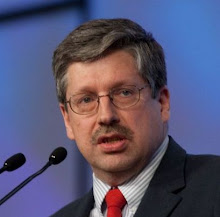Magical City
I loved magicians when I was a kid. I remember watching Blackstone on television. Later David Copperfield came along. I remember seeing magicians at parties and events. It was always fun to watch. But then in high school I met a guy who did magic tricks. He showed me how a few tricks were done. I always knew that magic wasn’t real (at least that is my story and I am sticking to it), but there is something both eye opening and disappointing when the trick is exposed. The illusion no longer works. You can't go back to the illusion.
I learned from my magician friend that the key to being a good magician is to divert the audience’s attention from what you are really doing by attracting their attention elsewhere. It is also helpful if the audience wants to see an illusion. They want the illusions to work. That is why it is often helpful to build rapport with crowd so they will willingly follow where you are leading.
The city, symbolic of human culture, is the same. Diversion from reality must be achieved at all cost. The dilemma between being unable to enter God’s presence and the futility of living without God’s presence must not become known. Therefore, an illusion of orderliness and safety is created. Institutions, rituals, myths, and philosophies develop that reinforce the validity of the illusion. Work, no matter how degrading or inhumane, is the unquestioned duty demanded by the city for the order it brings.
It is not necessary the illusion be effective with everyone or with every person all the time. It is sufficient that the great majority buy the illusion most of the time. Ultimately, the city must keep the community in an "eternal present" for to suggest that there is an alternate reality in the future would call into the legitimacy of the city today. Whatever future change there will be, must defined as an extension and expansion of the city’s values. Therefore, talk of alternate futures, instilling hope in alternate futures, is deeply subversive. It could bring the illusion crumbling to the ground and release people from their numbing complicity in the illusion. Those that talk of alternate futures most be isolated as insane. If they can not be so isolated they must be defined as evil and repressed.
I have said that God’s plan is to redeem the city and make it his. This enterprise has at least three aspects to it. First, is the revelation that the door to God is not closed. The dilemma so fearfully being avoided is really no dilemma at all. There is a way home. Second, destruction of the illusion and exposure of those who perpetuate the illusion because of the privilege and power they receive from it. Third, freedom from the delusion in the hearts of individuals that keeps them fearful and rebellious, wanting to embrace the illusion.
God is on a mission. He begins in a place called Ur of the Chaldees.


1 Comments:
You sum this up remarkably well.
I have often wondered exactly how much of my life is pointless activity -- apparently by design, Pursuing things that don't really matter, being encouraged to crave what I can't afford. (I say this because it seems to be what I see around me as well. Sometimes I'm aware of it, but it seems that so many things re-inforce this illusion. And this is seemingly as true for Christians as others. Hmmm.)
Amen -- we don't have to live that way.
Now I have to mow my lawn . . . because . . . um . . . my neighbors do?
Post a Comment
<< Home